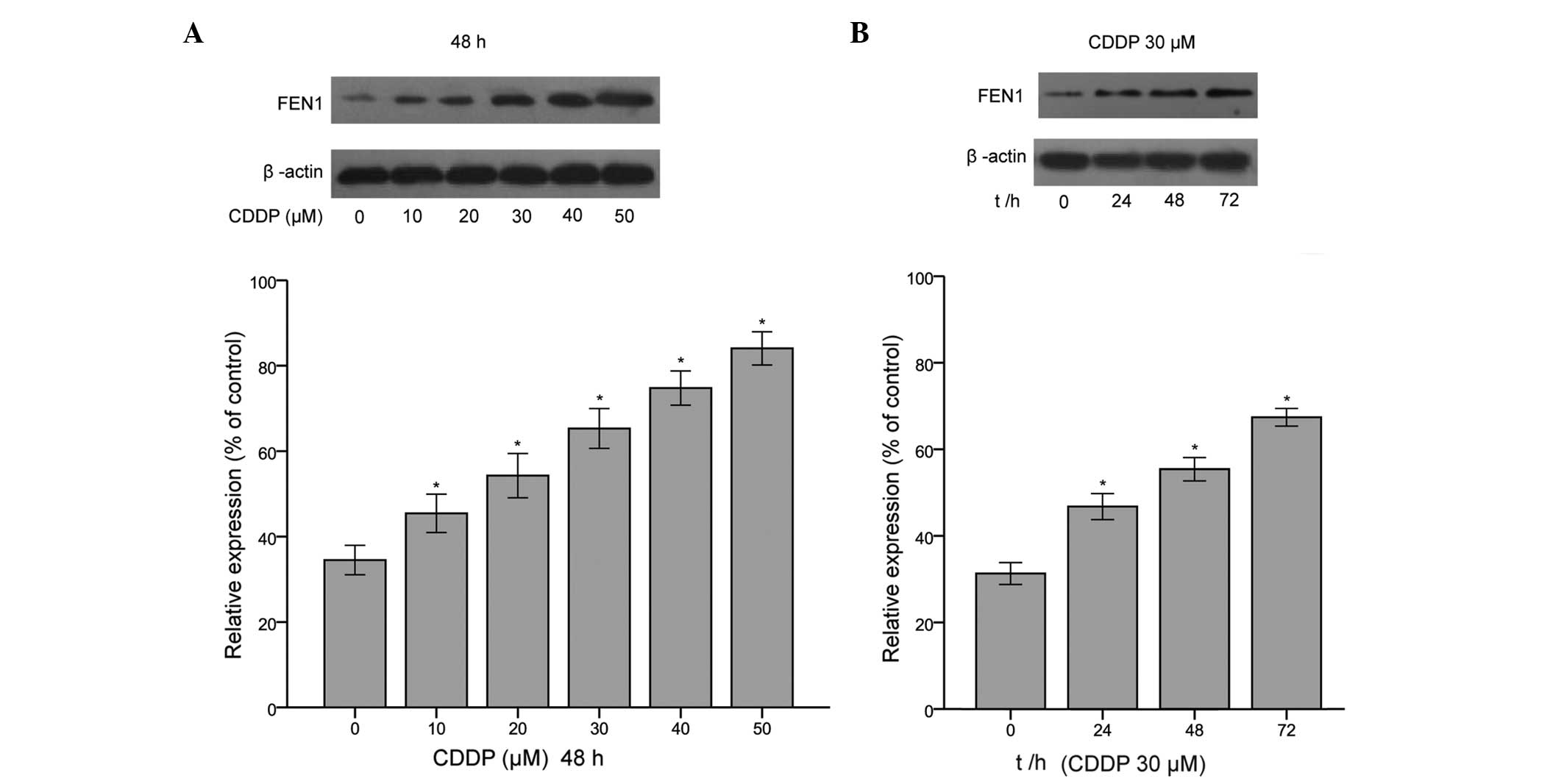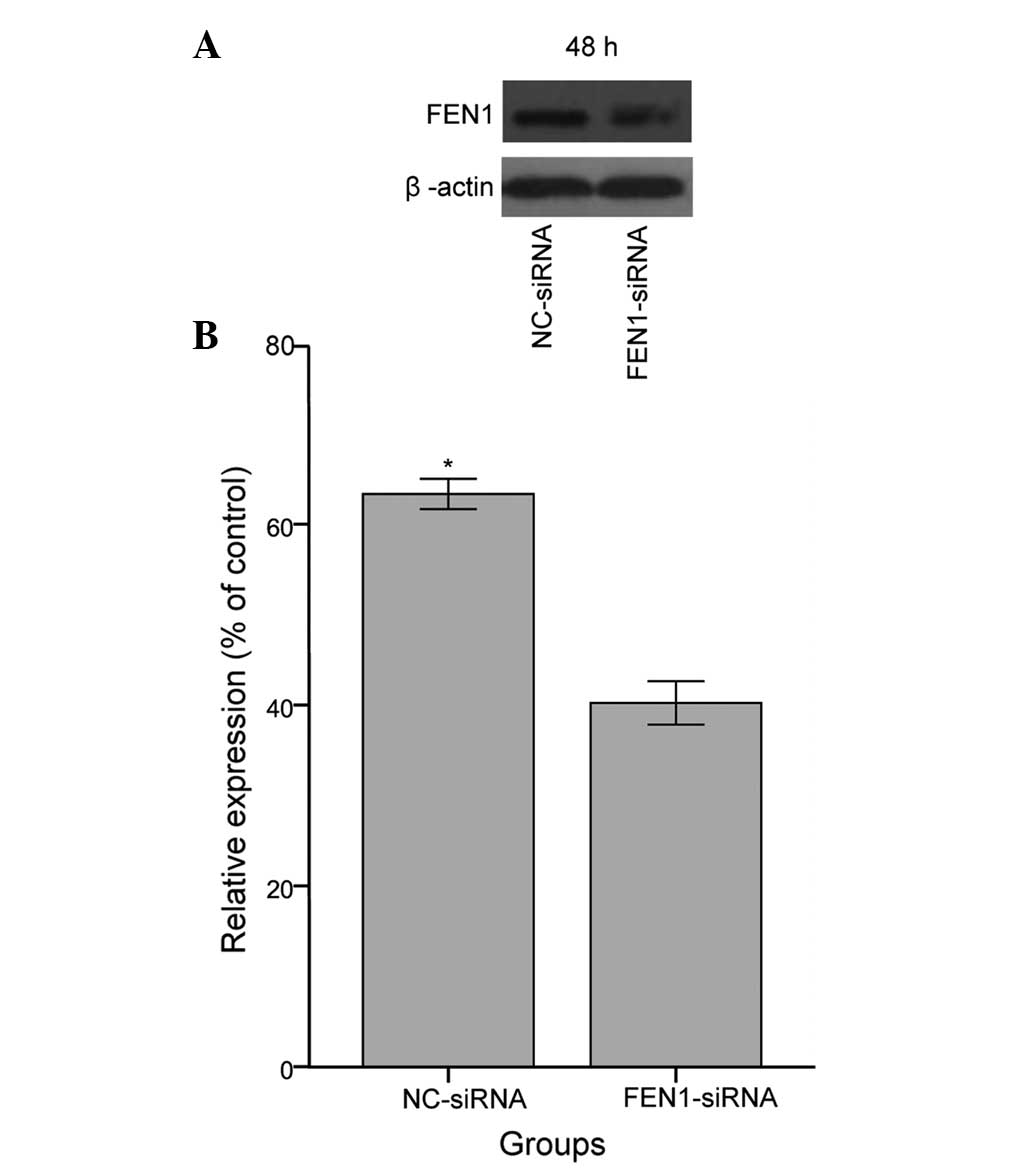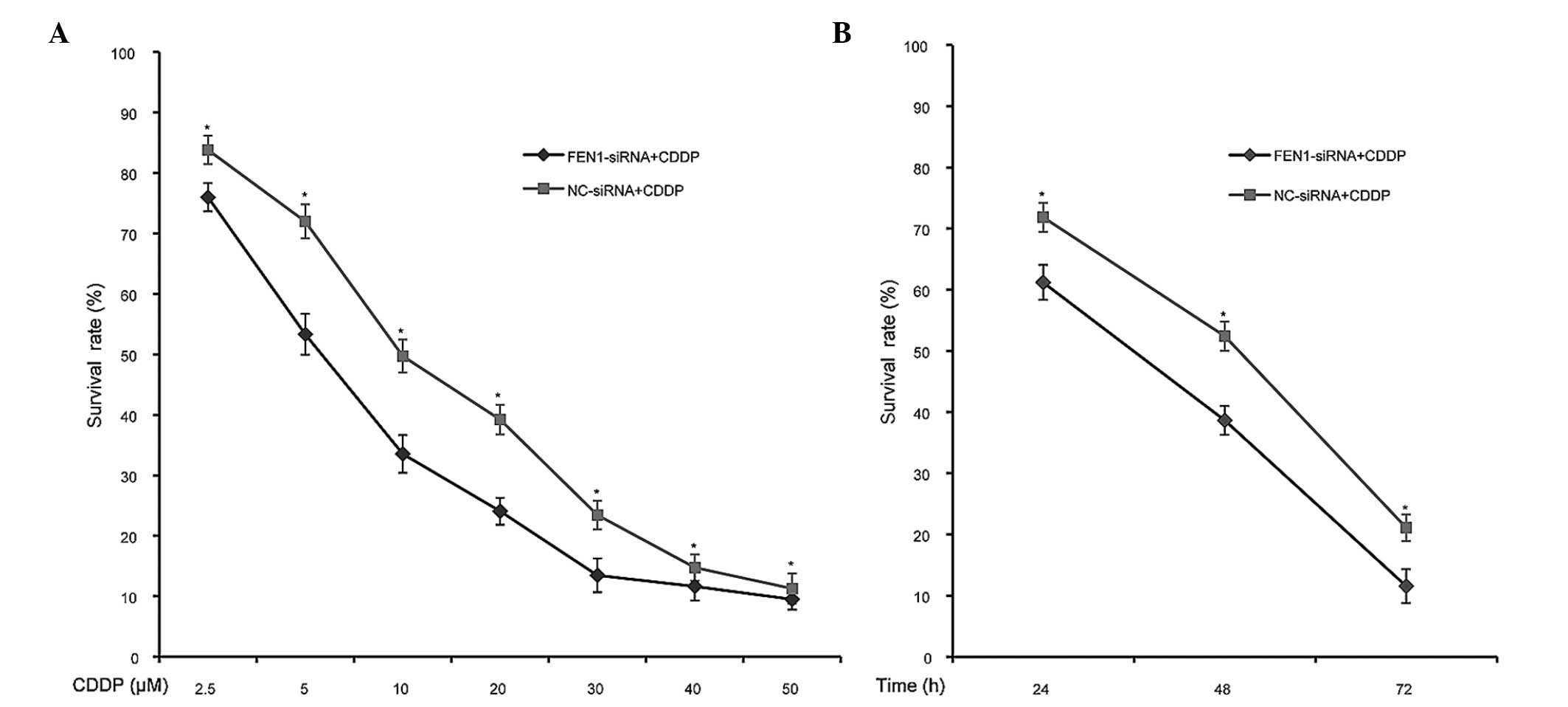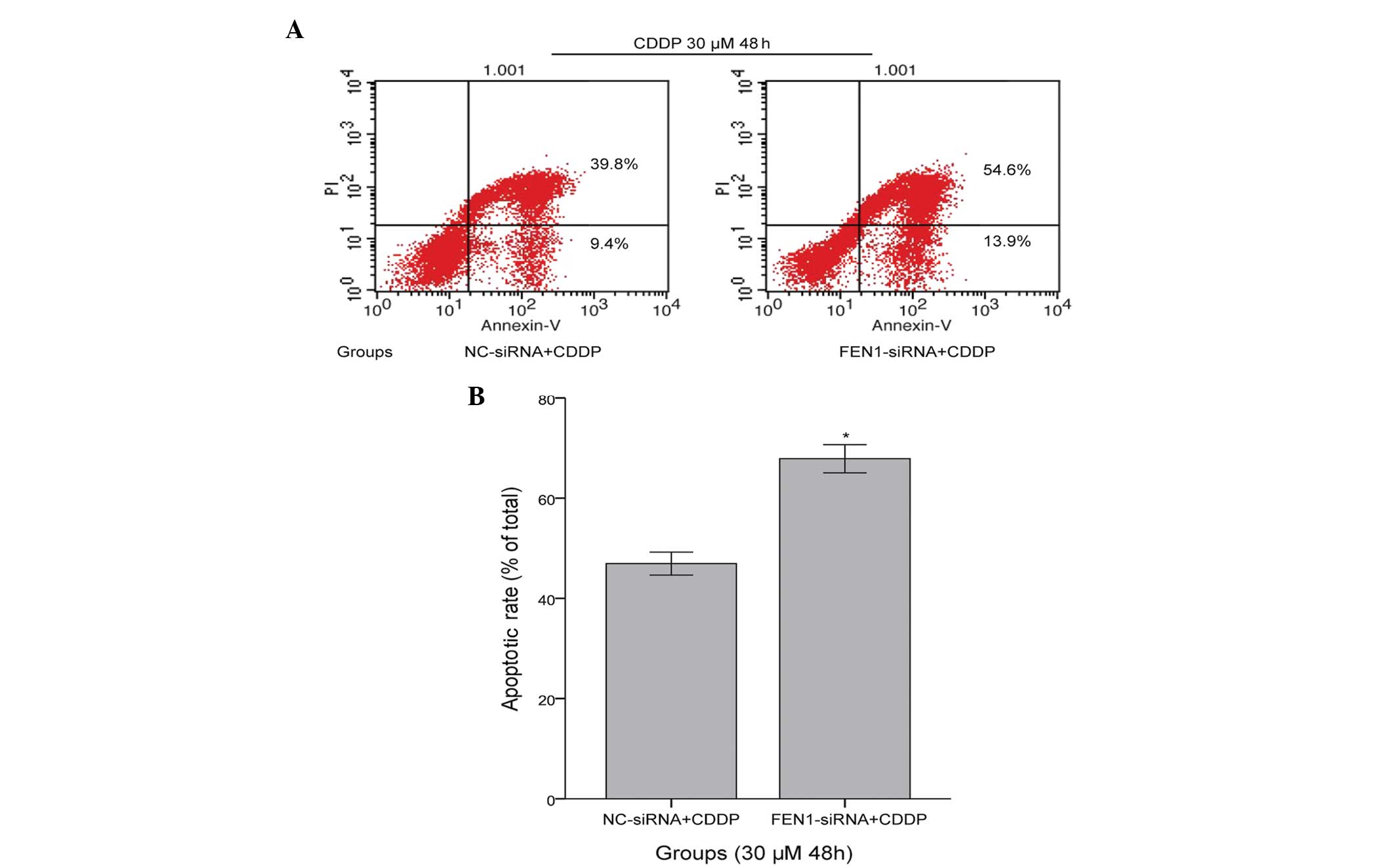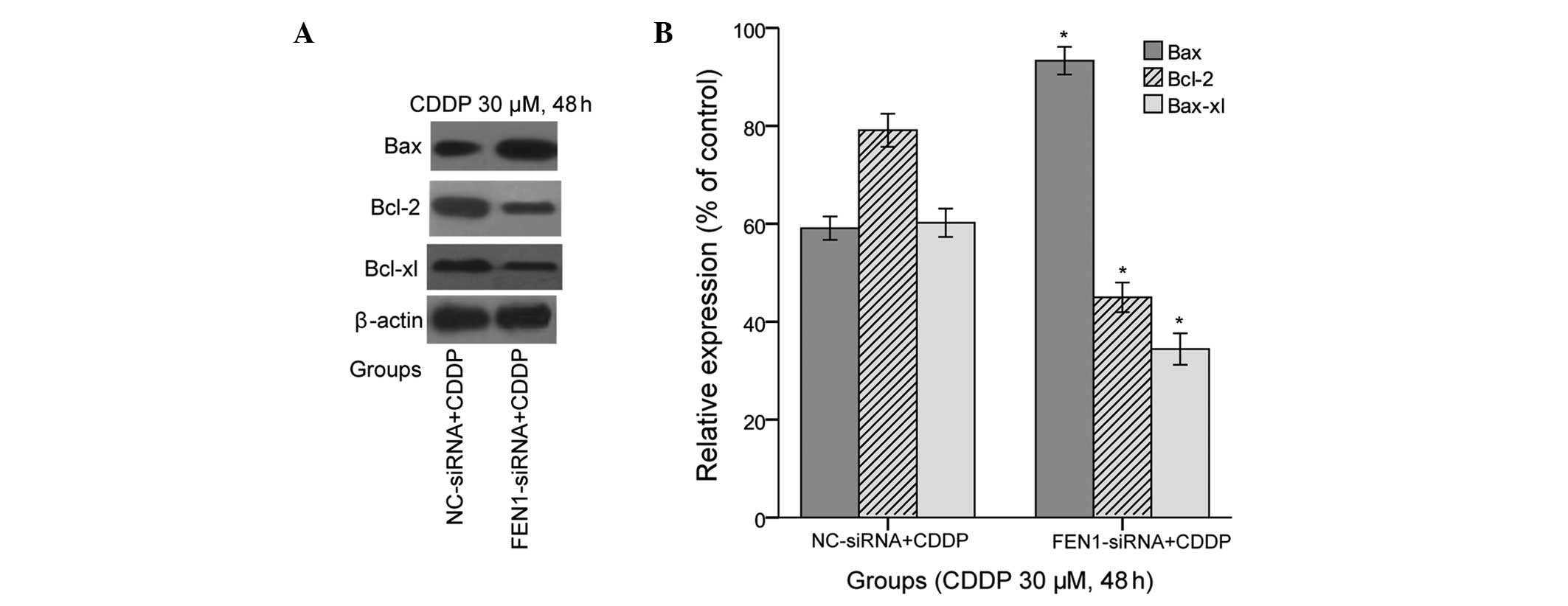|
1
|
Nagini S: Carcinoma of the stomach: A
review of epidemiology, pathogenesis, molecular genetics and
chemoprevention. World J Gastrointest Oncol. 4:156–169. 2012.
View Article : Google Scholar : PubMed/NCBI
|
|
2
|
Kamangar F, Dores GM and Anderson WF:
Patterns of cancer incidence, mortality and prevalence across five
continents: Defining priorities to reduce cancer disparities in
different geographic regions of the world. J Clin Oncol.
24:2137–2150. 2006. View Article : Google Scholar : PubMed/NCBI
|
|
3
|
Ferlay J, Parkin DM and Steliarova-Foucher
E: Estimates of cancer incidence and mortality in Europe in 2008.
Eur J Cancer. 46:765–781. 2010. View Article : Google Scholar : PubMed/NCBI
|
|
4
|
Meyer HJ and Wilke H: Treatment strategies
in gastric cancer. Dtsch Arztebl Int. 108:698–705. 2011.PubMed/NCBI
|
|
5
|
Chang WJ, Du Y, Zhao X, Ma LY and Cao GW:
Inflammation-related factors predicting prognosis of gastric
cancer. World J Gastroenterol. 20:4586–4596. 2014. View Article : Google Scholar : PubMed/NCBI
|
|
6
|
Jamieson ER and Lippard SJ: Structure,
recognition and processing of cisplatin-DNA adducts. Chem Rev.
99:2467–2498. 1999. View Article : Google Scholar
|
|
7
|
Loehrer PJ and Einhorn LH: Drugs five
years later Cisplatin. Ann Intern Med. 100:704–713. 1984.
View Article : Google Scholar : PubMed/NCBI
|
|
8
|
Reedijk J: New clues for platinum
antitumor chemistry: Kinetically controlled metal binding to DNA.
Proc Natl Acad Sci USA. 100:3611–3616. 2003. View Article : Google Scholar : PubMed/NCBI
|
|
9
|
Woźniak K and Błasiak J: Recognition and
repair of DNA-cisplatin adducts. Acta Biochim Pol. 49:583–596.
2002.
|
|
10
|
Olaussen KA, Dunant A, Fouret P, Brambilla
E, André F, Haddad V, Taranchon E, Filipits M, Pirker R, Popper HH,
et al: DNA repair by ERCC1 in non-small-cell lung cancer and
cisplatin-based adjuvant chemotherapy. N Engl J Med. 355:983–991.
2006. View Article : Google Scholar : PubMed/NCBI
|
|
11
|
Reed E: Platinum-DNA adduct, nucleotide
excision repair and platinum based anti-cancer chemotherapy. Cancer
Treat Rev. 24:331–344. 1998. View Article : Google Scholar : PubMed/NCBI
|
|
12
|
Xu Y, Wang C and Li Z: A new strategy of
promoting cisplatin chemotherapeutic efficiency by targeting
endoplasmic reticulum stress. Mol Clin Oncol. 2:3–7.
2014.PubMed/NCBI
|
|
13
|
Harrington JJ and Lieber MR: The
characterization of amammalian DNA structure-specific endonuclease.
EMBO J. 13:1235–1246. 1994.PubMed/NCBI
|
|
14
|
Henneke G, Friedrich-Heineken E and
Hübscher U: Flap endo-nuclease 1: A novel tumour suppressor
protein. Trends Biochem Sci. 28:384–390. 2003. View Article : Google Scholar : PubMed/NCBI
|
|
15
|
Klungland A and Lindahl T: Second pathway
for completion of human DNA base excision-repair: Reconstitution
with purified-proteins and requirement for DNase IV (FEN1). EMBO J.
16:3341–3348. 1997. View Article : Google Scholar : PubMed/NCBI
|
|
16
|
Lam JS, Seligson DB, Yu H, Li A, Eeva M,
Pantuck AJ, Zeng G, Horvath S and Belldegrun AS: Flap endonuclease
1 is overex-pressed in prostate cancer and is associated with a
high Gleason score. BJU Int. 98:445–451. 2006. View Article : Google Scholar : PubMed/NCBI
|
|
17
|
Singh P, Yang M, Dai H, Yu D, Huang Q, Tan
W, Kernstine KH, Lin D and Shen B: Overexpression and
hypomethylation of flap endonuclease 1 gene in breast and other
cancers. Mol Cancer Res. 6:1710–1717. 2008.PubMed/NCBI
|
|
18
|
Iacobuzio-Donahue CA, Maitra A, Olsen M,
Lowe AW, van Heek NT, Rosty C, Walter K, Sato N, Parker A, Ashfaq
R, et al: Exploration of global gene expression patterns in
pancreatic adenocarcinoma using cDNA microarrays. Am J Pathol.
162:1151–1162. 2003. View Article : Google Scholar : PubMed/NCBI
|
|
19
|
Nikolova T, Christmann M and Kaina B: FEN1
is overexpressed in testis, lung and brain tumors. Anticancer Res.
29:2453–2459. 2009.PubMed/NCBI
|
|
20
|
Sato M, Girard L, Sekine I, Sunaga N,
Ramirez RD, Kamibayashi C and Minna JD: Increased expression and no
mutation of the Flap endonuclease (FEN1) gene in human lung cancer.
Oncogene. 22:7243–7246. 2003. View Article : Google Scholar : PubMed/NCBI
|
|
21
|
LaTulippe E, Satagopan J, Smith A, Scher
H, Scardino P, Reuter V and Gerald WL: Comprehensive gene
expression analysis of prostate cancer reveals distinct
transcriptional programs associated with metastatic disease. Cancer
Res. 62:4499–4506. 2002.PubMed/NCBI
|
|
22
|
Wang K, Xie C and Chen D: Flap
endonuclease 1 is a promising candidate biomarker in gastric cancer
and is involved in cell proliferation and apoptosis. Int J Mol Med.
33:1268–1274. 2014.PubMed/NCBI
|
|
23
|
Abdel-Fatah TM, Russell R, Albarakati N,
Maloney DJ, Dorjsuren D, Rueda OM, Moseley P, Mohan V, Sun H,
Abbotts R, et al: Genomic and protein expression analysis reveals
flap endnuclease 1 (FEN1) as a key biomarker in breast and ovarian
cancer. Mol Oncol. 87:1326–1338. 2014. View Article : Google Scholar
|
|
24
|
Panda H, Jaiswal AS, Corsino PE, Armas ML,
Law BK and Narayan S: Amino acid Asp181 of 5′-flap endonuclease 1
is a useful target for chemotherapeutic development. Biochemistry.
48:9952–9958. 2009. View Article : Google Scholar : PubMed/NCBI
|
|
25
|
Zheng L, Dai H, Zhou M, Li M, Singh P, Qiu
J, Tsark W, Huang Q, Kernstine K, Zhang X, et al: FEN1 mutations
result in autoimmunity, chronic inflammation and cancers. Nat Med.
13:812–819. 2007. View
Article : Google Scholar : PubMed/NCBI
|
|
26
|
Liu L, Zhou C, Zhou L, Peng L, Li D, Zhang
X, Zhou M, Kuang P, Yuan Q, Song X and Yang M: Functional FEN1
genetic variants contribute to risk of hepatocellular carcinoma,
esophageal cancer, gastric cancer and colorectal cancer.
Carcinogenesis. 33:119–123. 2012. View Article : Google Scholar
|
|
27
|
Middleton MR and Margison GP: Improvement
of chemotherapy efficacy by inactivation of a DNA-repair pathway.
Lancet Oncol. 4:37–44. 2003. View Article : Google Scholar : PubMed/NCBI
|
|
28
|
Das D, Preet R, Mohapatra P, Satapathy SR
and Kundu CN: 1,3-Bis (2-chloroethyl)-1-nitrosourea enhances the
inhibitory effect of resveratrol on 5-fluorouracil
sensitive/resistant colon cancer cells. World J Gastroenterol.
19:7374–7388. 2013. View Article : Google Scholar : PubMed/NCBI
|
|
29
|
Dianova II, Bohr VA and Dianov GL:
Interaction of human AP endonuclease 1 with flap endonuclease 1 and
proliferating cell nuclear antigen involved in long-patch base
excision repair. Biochemistry. 40:12639–12644. 2001. View Article : Google Scholar : PubMed/NCBI
|
|
30
|
Saharia A, Guittat L, Crocker S, Lim A,
Steffen M, Kulkarni S and Stewart SA: Flap endonuclease 1
contributes to telomere stability. Curr Biol. 18:496–500. 2008.
View Article : Google Scholar : PubMed/NCBI
|
|
31
|
Parrish JZ, Yang C, Shen B and Xue D:
CRN-1, a Caenorhabditis elegans FEN1 homologue, cooperates with
CPS-6/EndoG to promote apoptotic DNA degradation. EMBO J.
22:3451–3460. 2003. View Article : Google Scholar : PubMed/NCBI
|
|
32
|
Tumey LN, Huck B, Gleason E, Wang J,
Silver D, Brunden K, Boozer S, Rundlett S, Sherf B, Murphy S, et
al: The identification and optimization of 2,4-diketobutyric acids
as flap endonuclease 1 inhibitors. Bioorg Med Chem Lett.
14:4915–4918. 2004. View Article : Google Scholar : PubMed/NCBI
|
|
33
|
Tumey LN, Bom D, Huck B, Gleason E, Wang
J, Silver D, Brunden K, Boozer S, Rundlett S, Sherf B, et al: The
identification and optimization of a N-hydroxy urea series of flap
endonuclease 1 inhibitors. Bioorg Med Chem Lett. 15:277–281. 2005.
View Article : Google Scholar
|
|
34
|
Chu G: Cellular responses to cisplatin.
The roles of DNA-binding proteins and DNA repair. J Biol Chem.
269:787–790. 1994.PubMed/NCBI
|
|
35
|
Galluzzi L, Vitale I, Michels J, Brenner
C, Szabadkai G, Harel-Bellan A, Castedo M and Kroemer G: Systems
biology of cisplatin resistance: Past, present and future. Cell
Death Dis. 5:e12572014. View Article : Google Scholar : PubMed/NCBI
|
|
36
|
Popoff SC, Beck DJ and Rupp WD: Repair of
plasmid DNA damaged in vitro with cis- or
trans-diamminedichloroplatinum(II) in Escherichia coli. Mutat Res.
183:129–137. 1987.PubMed/NCBI
|
|
37
|
Fuertes MA, Alonso C and Pérez JM:
Biochemical modulation of cisplatin mechanisms of action:
Enhancement of antitumor activity and circumvention of drug
resistance. Chem Rev. 103:645–662. 2003. View Article : Google Scholar : PubMed/NCBI
|
|
38
|
Sawyers C: Targeted cancer therapy.
Nature. 432:294–297. 2004. View Article : Google Scholar : PubMed/NCBI
|
|
39
|
Larsen E, Kleppa L, Meza TJ, Meza-Zepeda
LA, Rada C, Castellanos CG, Lien GF, Nesse GJ, Neuberger MS,
Laerdahl JK, et al: Early-onset lymphoma and extensive embryonic
apoptosis in two domain-specific Fen1 mice mutants. Cancer Res.
68:4571–4579. 2008. View Article : Google Scholar : PubMed/NCBI
|















